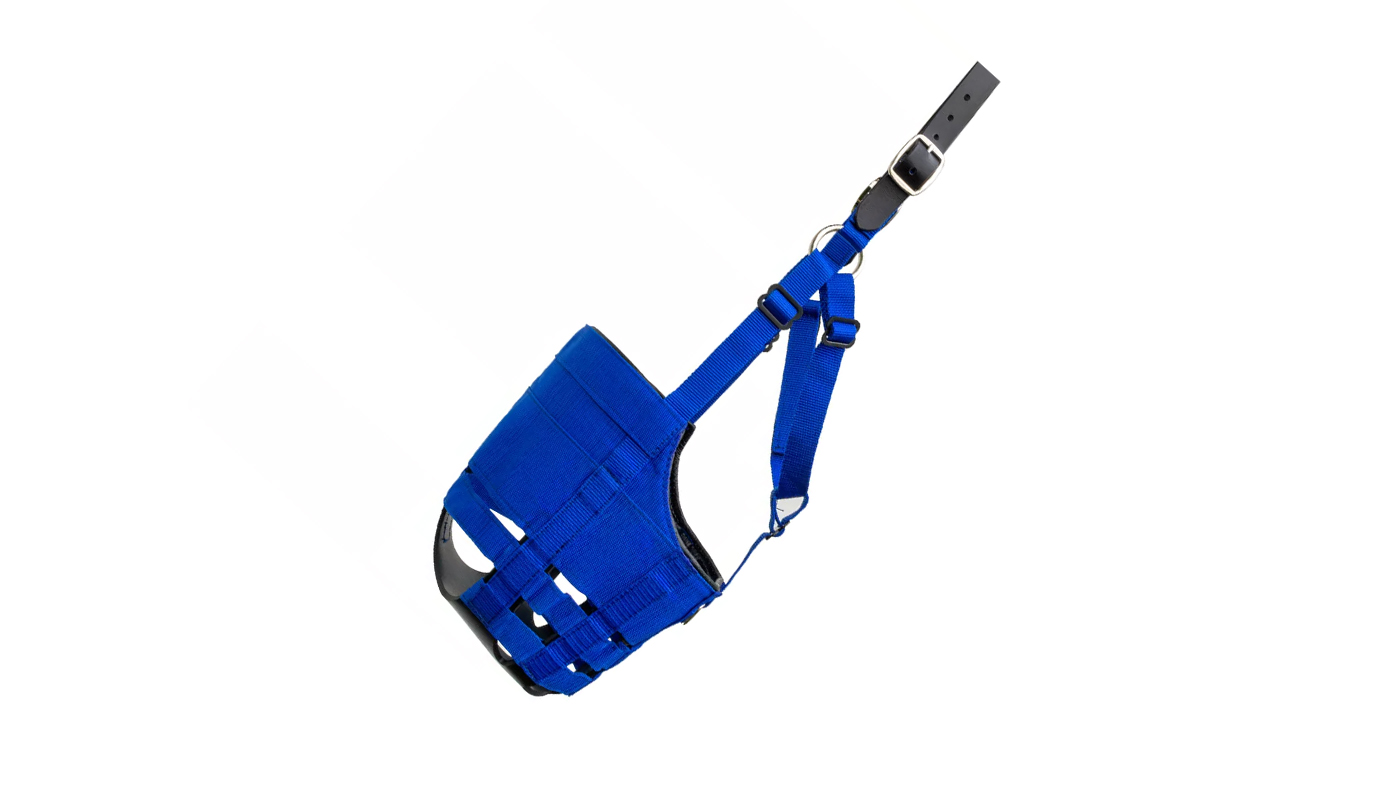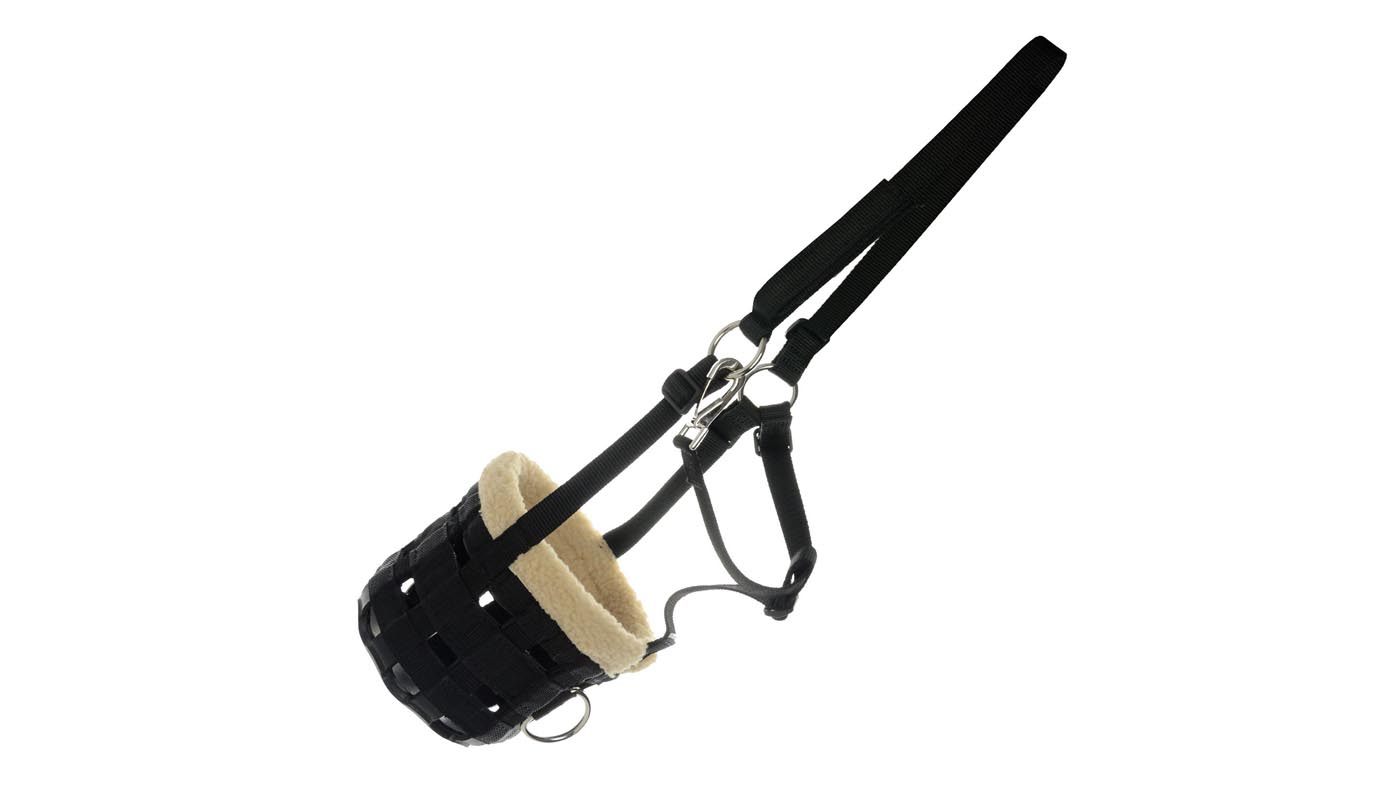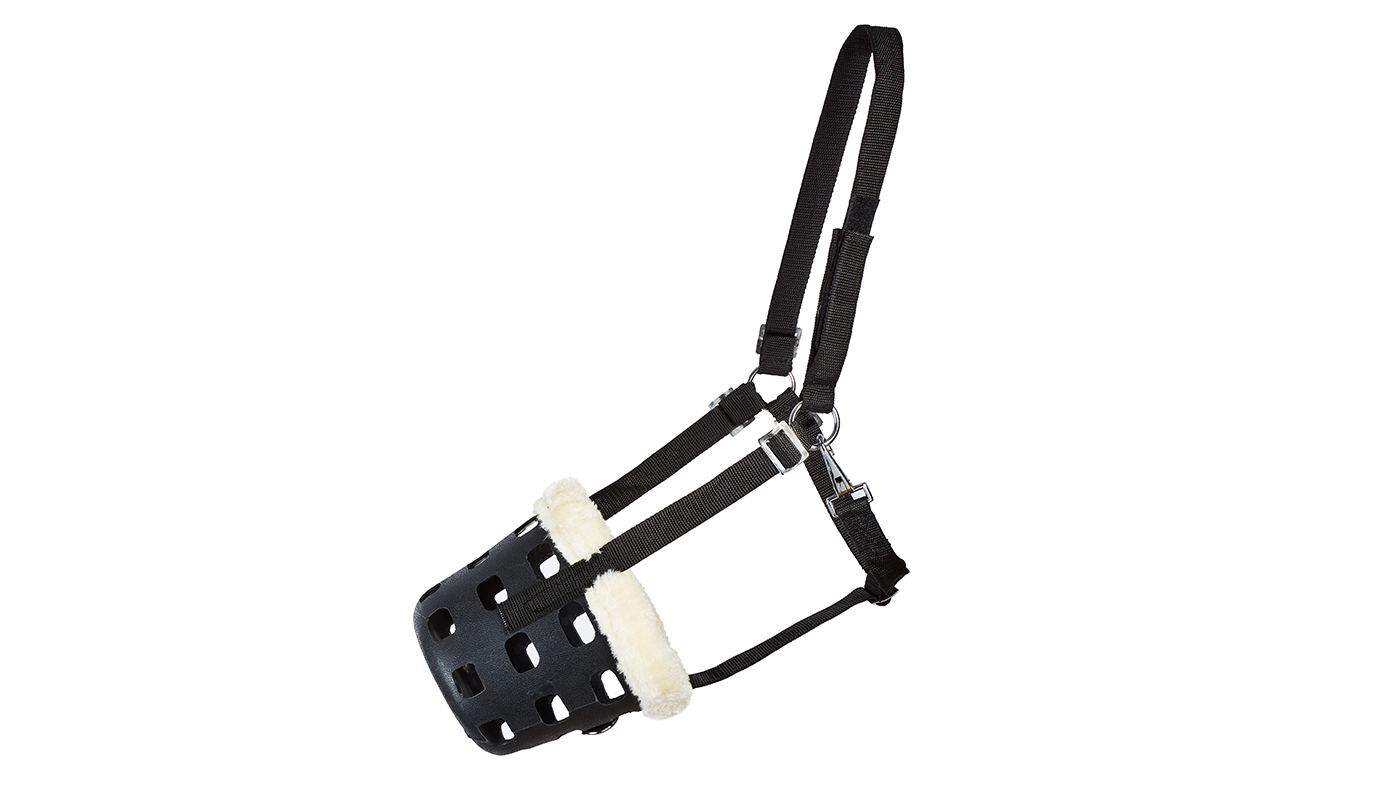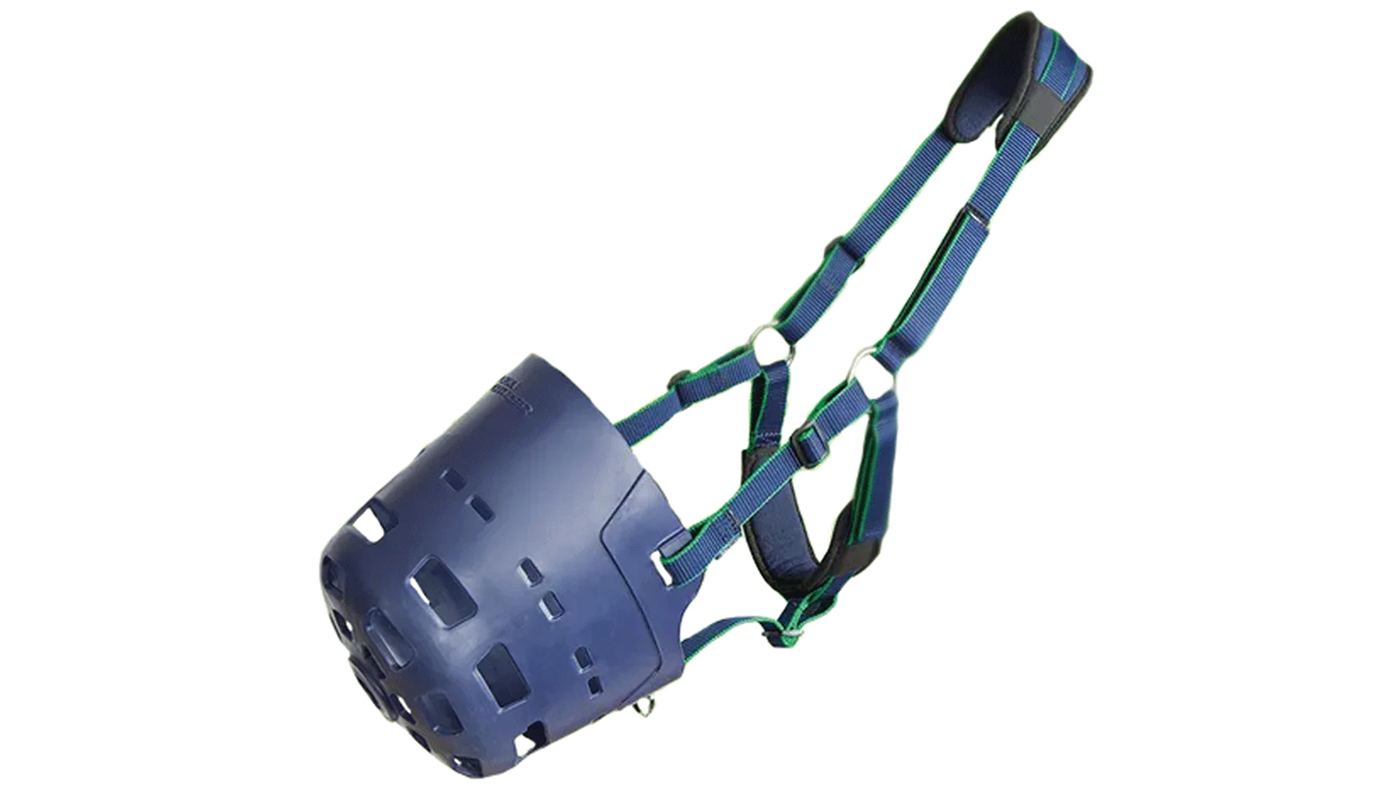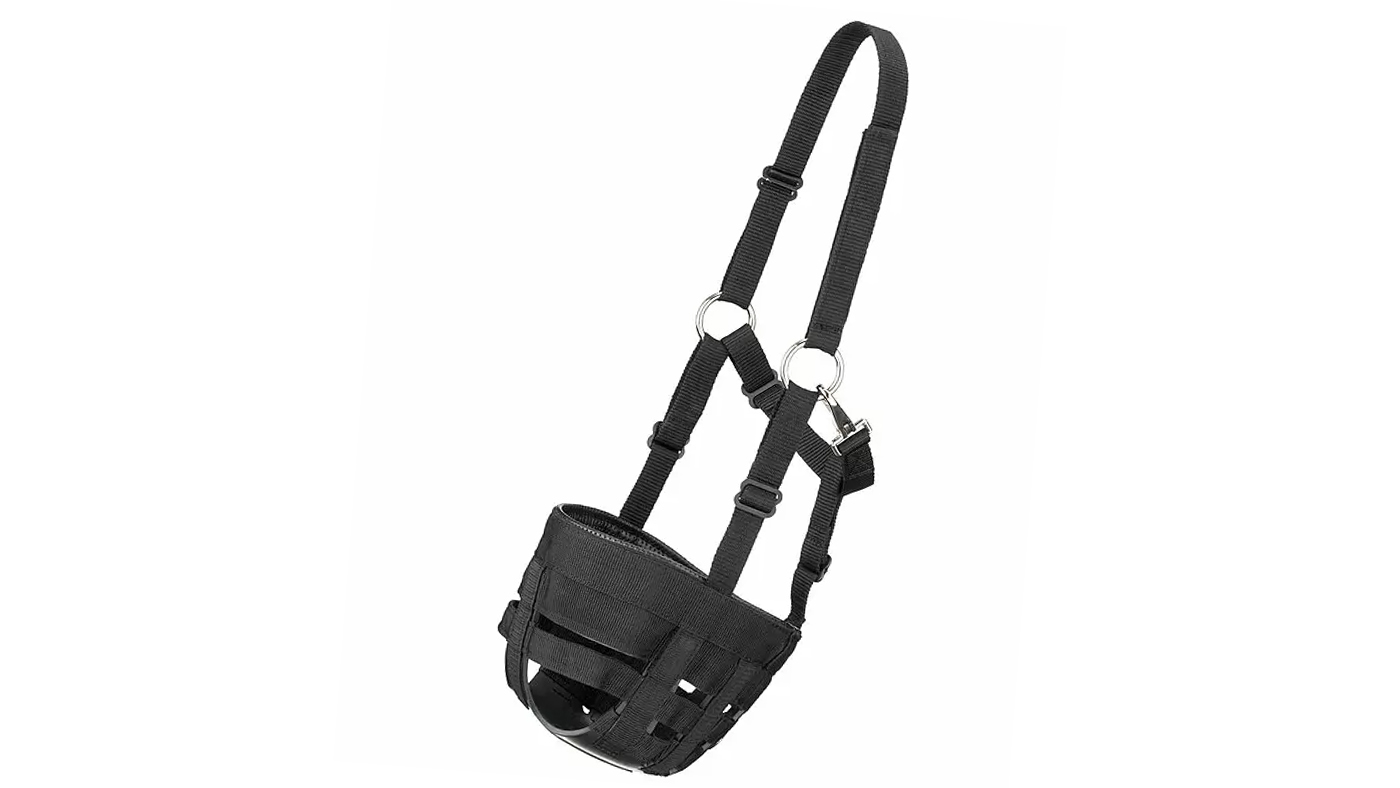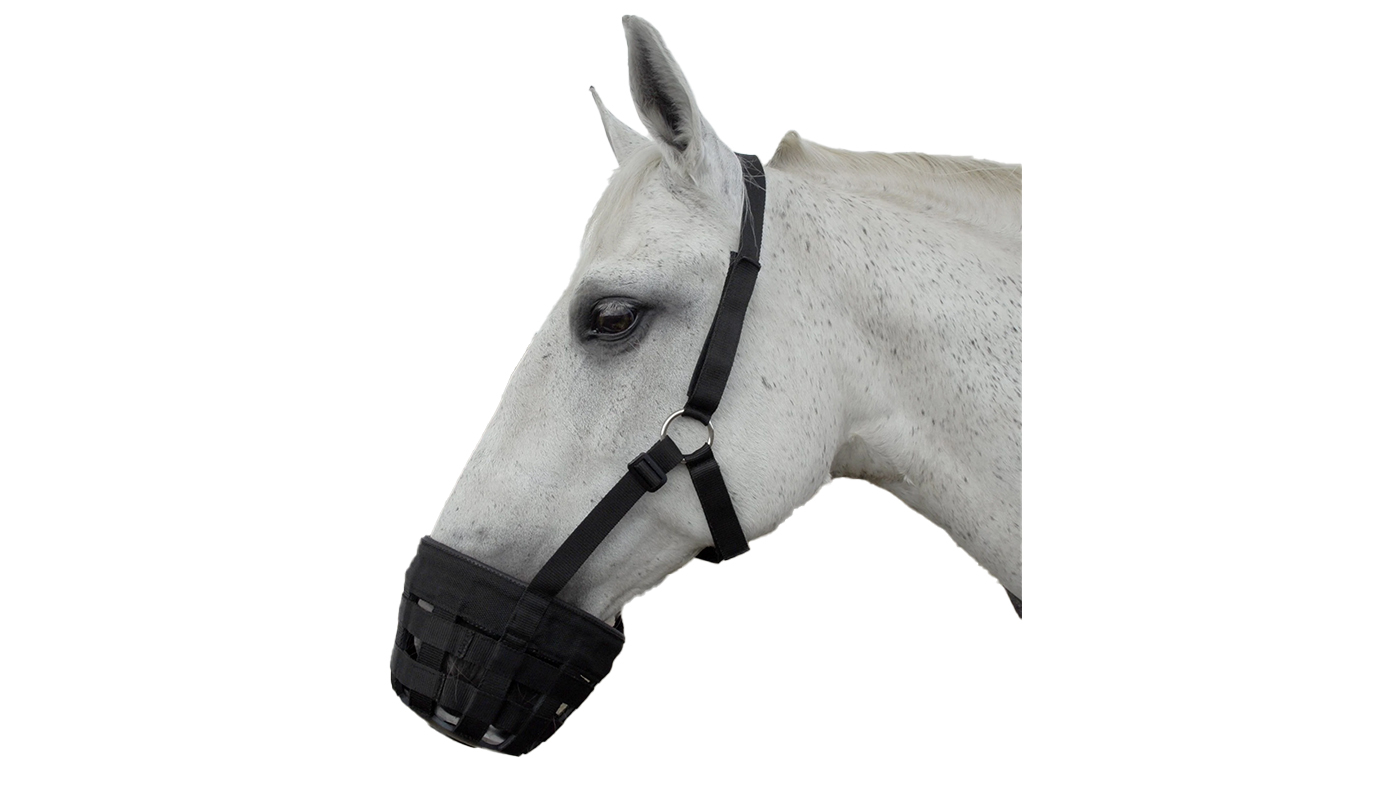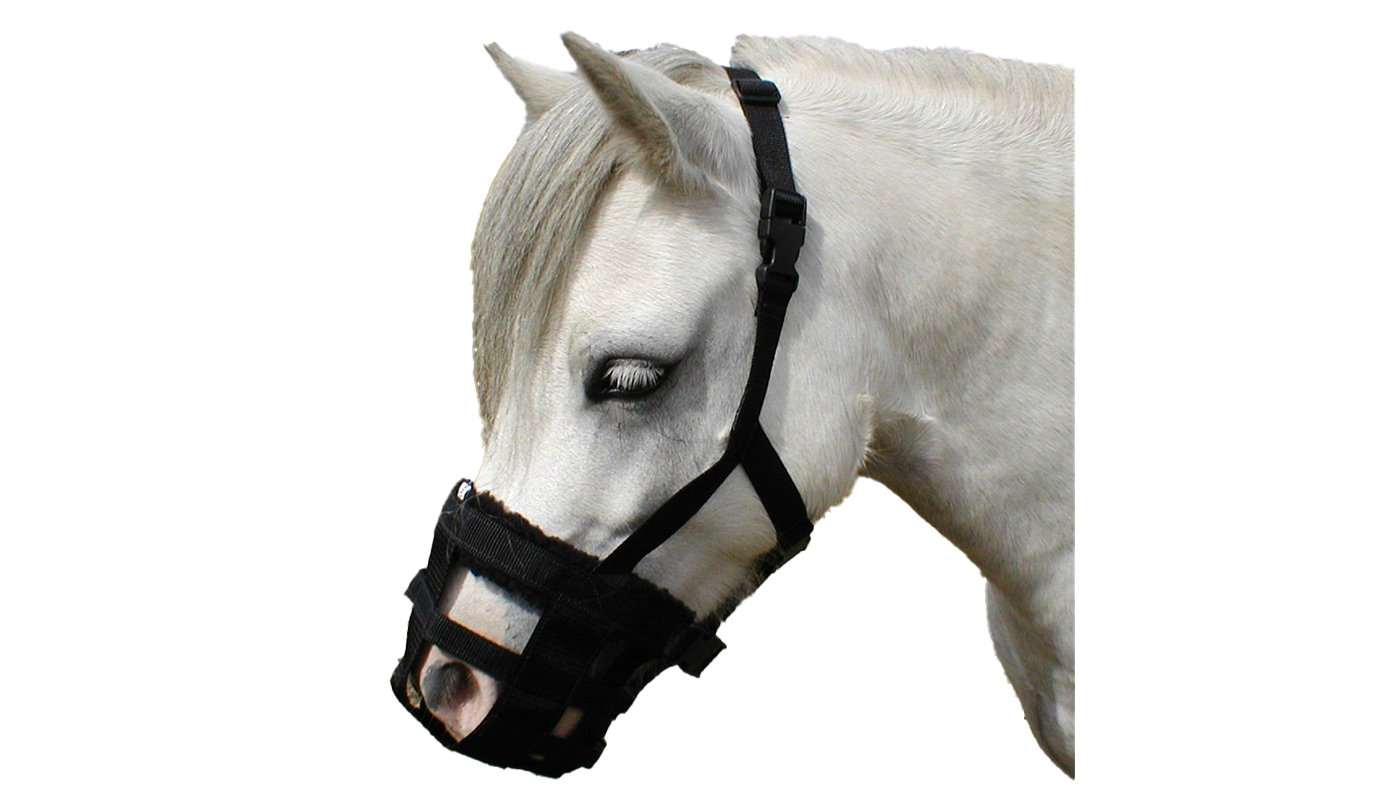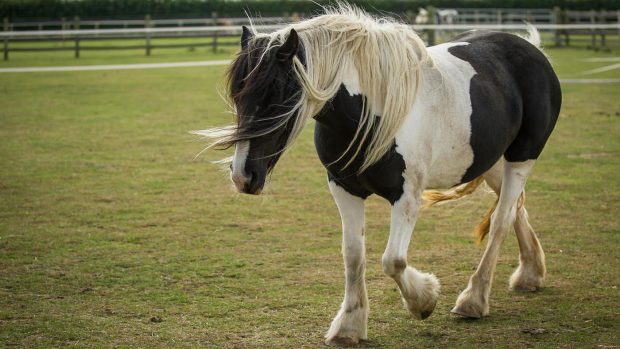The best grazing muzzles can be a highly beneficial tool in the fight against equine obesity and laminitis. They can be worn by all horses, not just the chunkier native pony breeds. If used correctly, they can successfully reduce your horse’s grazing intake.
There are a variety of grazing muzzle styles available. Some muzzles are attached directly to a headcollar, while others are all-inclusive and come as one piece.
Best grazing muzzles: what are your options?
ThinLine Flexible Filly Grazing Muzzle
Colours: Clear
Sizes: S–L
RRP: £89
Reasons to buy
- No rubbing
- Offers UV protection to sensitive noses
This soft, light muzzle from KM Elite attaches to a Thinline Breakaway field safe headcollar (available separately) or your horse’s normal headcollar with cable ties. It is constructed of a durable and pliable mould-resistant material that is soft on the teeth and lips. It has UV protection and an adjustable grazing hole size.
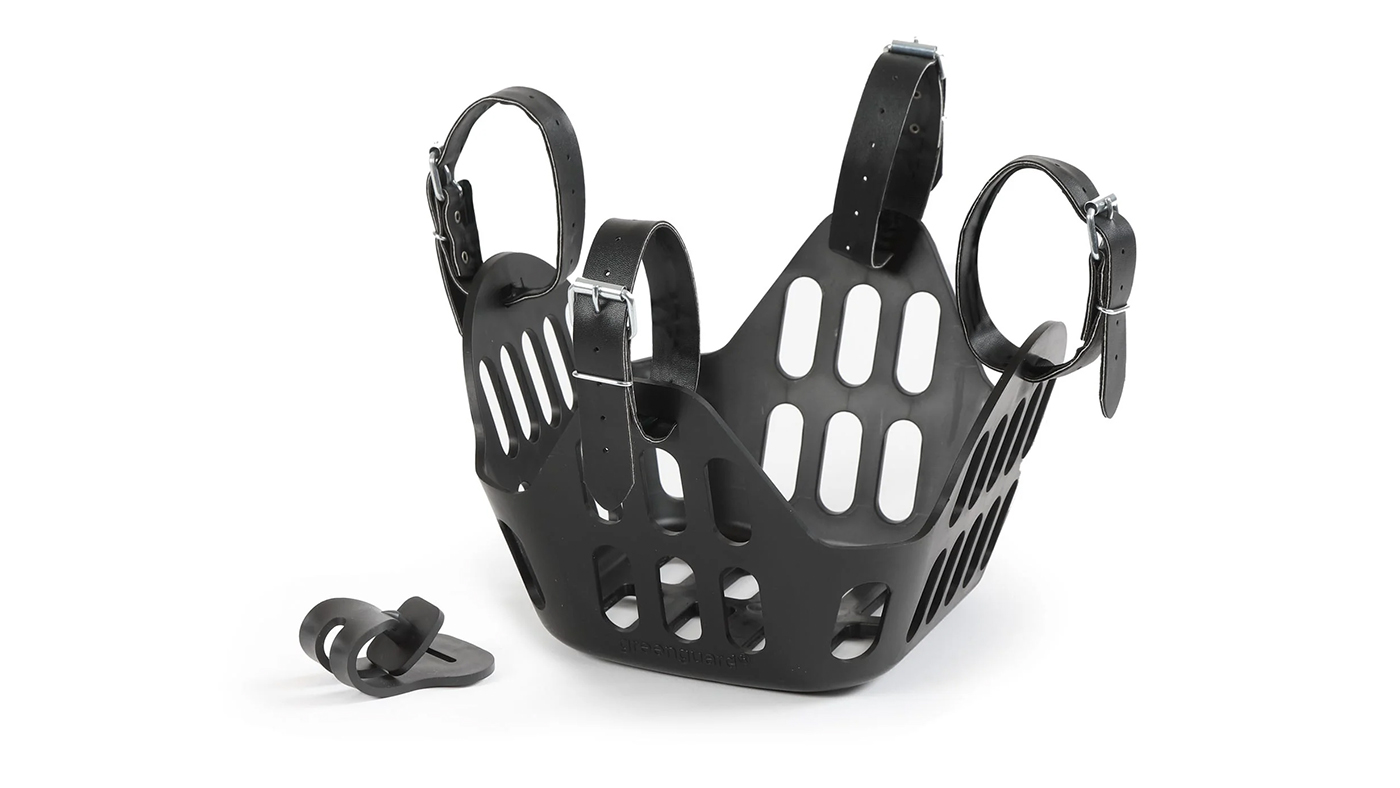
Shires GreenGuard Muzzle
Colours: Black
Sizes: Pony – full
RRP: £74.99
Reasons to buy
- Easy to attach and adjust
- Lightweight
This lightweight basket-style muzzle from Shires is durable and UV resistant. It should be attached to a GreenGuard headcollar (available separately), which has an additional front strap to hold the front in place, or your normal headcollar, with four adjustable straps. Features several grazing holes.
The Ultimate Grazing Muzzle
Colours: Blue
Sizes: Small pony – extra-full
RRP: From £30
Reasons to buy
- Wide size range
- Leather headpiece
- Large nostril holes
This muzzle has an adjustable leather headpiece, soft webbing straps and a leadrope ring. The Ultimate Muzzle has been made higher at the front to prevent the horse from removing it. It has large nostril holes for ease of breathing, and a rubber base with one rectangle grazing hole.
Best Friend Deluxe Grazing Muzzle
Colours: Black
Sizes: Mini – draft
RRP: £44.95
Reasons to buy
- In-built breakaway headcollar
- Large size range
This muzzle by Best Friend has a built-in breakaway headcollar with five adjustment points. It has a padded noseband and is totally synthetic, which makes it resistant to rot and mildew. It has a rubber base with one grazing hole.

Shires FreeGraze Comfort Grazing Muzzle
Colours: Black
Sizes: Small pony – extra-full
RRP: £21.99
Reasons to buy
- Shaped for improved fit
- Field-safe fastenings
This muzzle is cut back under the chin to avoid unnecessary pressure and improve the fit. The muzzle has a rubber base, reinforced nylon web bars and anti-chafe padding around the inside of the muzzle that protects the nose and chin. The fully adjustable headcollar also benefits from anti-chafe padding and is fitted with a field-safe fastening, while a D-ring allows a lead rope to be attached.
The Deluxe version is lined with synthetic wool, which helps protect against chafing and improves airflow around the delicate nose area.
Hy Equestrian Muzzle With Fleece
Colours: Black
Sizes: Extra-small pony – extra-full
RRP: £21.99
Reasons to buy
- Additional padding to prevent rubbing
- Leadrope ring
This non-slip nylon muzzle from Hy has additional fleece padding on the inside to prevent rubbing. It has a rubber base with one grazing hole, a double hook and loop fastener on the headpiece, a clip throat lash and a leadrope ring. Also available without fleece.
Elico Grazing Muzzle
Colours: Black
Sizes: Pony – Full
RRP: £18.95
Reasons to buy
- Great value
- Field-safe fastenings
A durable, moulded rubber muzzle with one grazing hole at the base. It’s padded around the nose piece for added comfort. With Nylon, touch-tape adjustable straps for safety and clip throatlash.
Shires Flexi Grazer Muzzle
Colours: Black
Sizes: Pony – full
RRP: £32.99
Reasons to buy
- Ergonomically shaped for comfort
- Easy to wash
This muzzle is well ventilated, durable and washable. The fully adjustable padded harness is ergonomically shaped and has field-safe fastenings to provide a secure fit. It also features a lower D-ring for attaching a lead rope.
Kramer Showmaster Ferdinard Grazing Muzzle
Colours: Black
Sizes: Shetland – full
RRP: From £21.99
Reasons to buy
- Large nostril holes
- Plenty of adjustment
This muzzle is made from nylon woven fabric with padding on the inside around the nose and with an additional cutout for the nostrils for added comfort. Double hook and loop fastening for safety, clip throatlash and leadrope ring. It has a flexible rubber base with one grazing hole.
Rhinegold Grazing Muzzle
Colours: Black
Sizes: Small pony – extra-full
RRP: £16.50
Reasons to buy
- Field-safe fastenings
- Great value
Made from a durable nylon webbing, this muzzle features padding around the nose for comfort, reinforced fully adjustable nylon sides and field-safe fastenings to provide a secure fit. It has a rubber base with one grazing hole.
Dinky Classic Grazing Muzzle
Colours: Black
Sizes: S – XL
RRP: From £20
Reasons to buy
- Soft and lightweight
- Wide size range
This muzzle is designed with two nostril holes for breathing ease. It is adjustable and has soft, lightweight webbing with plastic side-release fittings, plus a touch-tape break away section for additional safety. It is also padded around the nose for added comfort, and has a webbing base with two grazing holes.
Why do horses wear grazing muzzles?
Grazing muzzles are used to restrict grass intake, while allowing your horse to benefit from turnout. They are usually used in conjunction with other measures, such as strip grazing, as part of a weight loss or maintenance plan to protect against equine obesity and other associated problems, such as laminitis. They do not prevent a horse from eating.
How long should a horse wear a grazing muzzle?
Grazing muzzles should not be left on 24/7. It’s not recommended that they’re worn for more than 10–12 hours each day, but it’s important to remember that during muzzle-free hours your horse’s grazing or access to forage should be restricted to avoid compensatory eating undoing your hard work.
Do grazing muzzles work?
Research studies have found that grazing muzzles can reduce grass intake significantly – one study found an 83% reduction over a three hour period. Another that looked at muzzle use over 10 hours, combined with 14 hours of un-muzzled turnout, and found that weight gain was reduced over a three-week period in most ponies.
Other scientists in Minnesota studied four horses grazing in four separate paddocks, each planted with a single grass species. The study, published in 2014, found there was no difference in the quantities of each grass species that the horses could consume through the muzzle. Wearing the muzzle reduced the horses’ dry matter intake by an average of about 30%.
How to introduce a grazing muzzle
It’s important to introduce a grazing muzzle slowly and to make it a positive experience for your horse. How long it takes for your horse to be accustomed to it will depend on his temperament and prior handling experience.
The National Equine Welfare Council recommends the following steps…
- Begin by training your horse to accept the muzzle near his face and then around his nose. Reward relaxed and calm behaviour.
- When your horse is accepting, do the muzzle up, leave it on for a few moments and provide a low-calorie treat reward through the muzzle.
- Increase the amount of time your horse is wearing the muzzle from seconds to minutes. Graze your horse in-hand to encourage him to try eating with the muzzle on.
- Increase the supervised time that your horse wears the muzzle before turning him out with it on. Make sure he is grazing comfortably and is able to drink easily.
Tips for successfully using a grazing muzzle
- Take time to introduce your horse to the muzzle
- Ensure you’ve fitted the muzzle correctly – most come with fitting advice
- Fence off any potential hazards where the muzzle could become caught
- Monitor your horse’s weight weekly and conduct a body condition score assessment at least every 2–4 weeks
- Check for rubbing daily – common areas include on the poll, behind the ears, top of the muzzle, lips, cheek bones and under the chin
- Ensure your horse’s grazing is restricted when he is not wearing the muzzle to avoid compensatory eating. Common options include stabling or putting him in a bare paddock with soaked hay during this time
- Check that your horse can manage to eat the grass in his field – grazing that is too long or too short can be difficult to eat through a muzzle
How do you keep a grazing muzzle on?
Firstly, make sure your muzzle is fitted correctly. Too tight and your horse may experience discomfort and put more effort into getting it off, but too loose and it’ll be easy to get off. Some owners swear by plaiting the forelock around the headpiece to hold it on, while others loop it through the ear holes of a fly rug. Some horses are particularly efficient muzzle removers, so it might take a bit of trial and error but perseverance is key.
You might also like:

12 haynets and slow feeders to extend eating time

12 supplements to keep your horse on his feet

Strip grazing – all you need to know to get started

Laminitis: how to spot the signs, plus treatments and ways to prevent it

10 tips to help you take control of your horse’s weight

Subscribe to Horse & Hound magazine today – and enjoy unlimited website access all year round
Horse & Hound magazine, out every Thursday, is packed with all the latest news and reports, as well as interviews, specials, nostalgia, vet and training advice. Find how you can enjoy the magazine delivered to your door every week, plus options to upgrade your subscription to access our online service that brings you breaking news and reports as well as other benefits.



